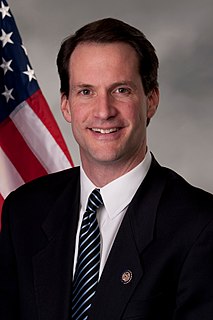A Quote by Ayn Rand
If I were to speak your kind of language, I would say that man's only moral commandment is: Thou shalt think.
But a 'moral commandment' is a contradiction in terms. The moral is the chosen, not the forced; the understood, not the obeyed.
The moral is the rational, and reason accepts no commandments.
Related Quotes
One reason for the decline in moral values is that the world has invented a new, constantly changing and undependable standard of moral conduct referred to as "situational ethics." Now, individuals define good and evil as being adjustable according to each situation; this is in direct contrast to the proclaimed God-given absolute standard: "Thou shalt not!"-as in "Thou shalt not steal".
I know that I shall have lost to the jungle if I take a weak moral standpoint or relax my mental punctiliousness. I have therefore come to a certain belief which is based on three powerful effective commandments: THOU SHALT BE ENTERTAINING AT ALL TIMES. THOU SHALT OBEY THY ARTISTIC CONSCIENCE AT ALL TIMES. THOU SHALT MAKE EACH FILM AS IF IT WERE THY LAST.
All of the Ten Commandments that are good were old; all that were new art foolish. If Jehovah had been civilized he would have left out the commandment about keeping the Sabbath, and in its place would have said: "Thou shalt not enslave thy fellow-men." He would have omitted the one about swearing, and said: "The man shall have but one wife, and the woman but one husband." He would have left out the one about graven images, and in its stead would have said: "Thou shalt not wage wars of extermination, and thou shalt not unsheathe the sword except in self-defence.
Killing for pleasure is wrong and should be banned. Fox hunting, stag hunting and hare coursing are moral issues. It is time that we stood up for morality. The commandment Thou shall not kill may be hedged with exceptions.Thou shall not kill for pleasure is not; it is a commandment for the 21st century and it is time that we respected it unambiguously, without prevarication and without procrastination.
Owe no man any thing, but to love one another: for he that loveth another hath fulfilled the law. For this, Thou shalt not commit adultery, Thou shalt not kill, Thou shalt not steal, Thou shalt not bear false witness, Thou shalt not covet; and if there be any other commandment, it is briefly comprehended in this saying, namely, Thou shalt love thy neighbour as thyself.
When you say there's too much evil in this world you assume there's good. When you assume there's good, you assume there's such a thing as a moral law on the basis of which to differentiate between good and evil. But if you assume a moral law, you must posit a moral Law Giver, but that's Who you're trying to disprove and not prove. Because if there's no moral Law Giver, there's no moral law. If there's no moral law, there's no good. If there's no good, there's no evil. What is your question?
It seems that wherever the Welfare State is involved, the moral precept, "Thou shalt not steal," becomes altered to say: "Thou shalt not steal, except for what thou deemest to be a worthy cause, where thou thinkest that thou canst use the loot for a better purpose than wouldst the victim of the theft."
The foundation of leadership is your own moral compass. I think the best quality leaders really know where their moral compass is. They get it out when they are making decisions. It's their guide. But not only do you have to have a moral compass and take it out of your pocket, it has to have a true north.
The objections to religion are of two sorts - intellectual and moral. The intellectual objection is that there is no reason to suppose any religion true; the moral objection is that religious precepts date from a time when men were more cruel than they are and therefore tend to perpetuate inhumanities which the moral conscience of the age would otherwise outgrow.





































